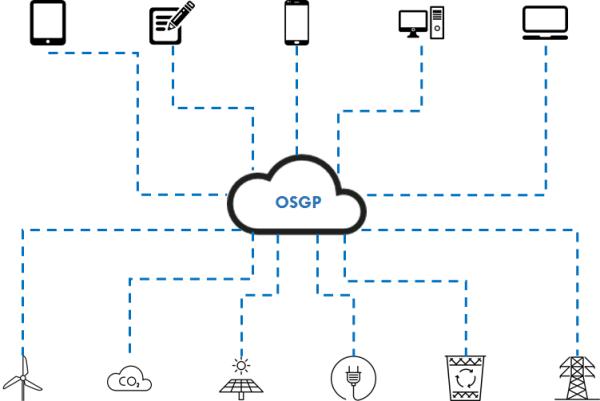Open Source grid management solves ONE of the problems of "smart" grids
And a crucial one. But NOT the main one, in the long term.

Dutch distribution system operator Alliander and LF Energy, a Linux Foundation project, just announced a new project to securely manage the modern electrical grid’s Industrial Internet of Things (IIoT).
The project is called Grid eXchange Fabric (GXF) and, as you can read on ZDNet, it enables the operators of power grids to “securely collect data and monitor, control, and manage smart devices on the grid”. GXF will make it much easier to control generic devices connected to the grid, and harvest data from them, via standard web applications, in an integrated way and through open protocols: “In short, GXF is a way of bringing system integration to the electrical grid”.
This is extremely important, and good news, for several reasons:
- waste of electrical energy (still too often from fossil fuels) is an important and ubiquitous part of economical and environmental problems. To solve such problems, we also need to know where and when there are devices that could be turned off, or really need more energy
- the great majority of Internet of Things is just an over-hyped waste of time, privacy, money and natural resources. But making our power grids really smarts is necessary, no question about this. GXF is an attempt to solve a real problem, not to invent new needs
- the only way to avoid a real big waste of money is to use really open digital protocols to handle all devices that need handling. Using proprietary product and system is NOT innovation. Not here for sure. It is only unnecessary complexity, lock-in and pollution
The Smart Grid issues that GXF cannot solve
GXF, says the ZDNet article, “is a foundational move”, and I agree. It will make much easier to redesign power grids worldwide. But exactly because it will make feasible what was not, it is important to not miss certain side effects it could intensify.
An LF Energy manager says that “Grid operators need a way to cut through the noise of different data access protocols to pull insights from smart devices directly.”
But “pull insight from smart devices” is exactly what is already happening with Amazon Ring cameras, to make just one of many examples: serious problems, caused not by security flaws or breaches, but because of systems working exactly as advertised.
Of course, GXF is about power grids and industrial applications, not useless or dangerous “smart” gadgets. But that is a reason to care much more, not less, about unnecessary or unrestrained data collection thanks to GXF.
The other thing to never forget is that Open Source is necessary, but far from the only thing needed to prevent lock-in, and waste of (often public) money. Specifically, GXF is necessary, but not sufficient to save “smart” cities from doing dumb things as buying “light as a service” in the wrong way. If you buy street lighting systems, or anything else, that you can control and monitor via GXF, but whose spare parts, or maintenance services, are only available from their original vendor, you have still been fooled. And no GXF will save you.
Who writes this, why, and how to help
I am Marco Fioretti, tech writer and aspiring polymath doing human-digital research and popularization.
I do it because YOUR civil rights and the quality of YOUR life depend every year more on how software is used AROUND you.
To this end, I have already shared more than a million words on this blog, without any paywall or user tracking, and am sharing the next million through a newsletter, also without any paywall.
The more direct support I get, the more I can continue to inform for free parents, teachers, decision makers, and everybody else who should know more stuff like this. You can support me with paid subscriptions to my newsletter, donations via PayPal (mfioretti@nexaima.net) or LiberaPay, or in any of the other ways listed here.THANKS for your support!